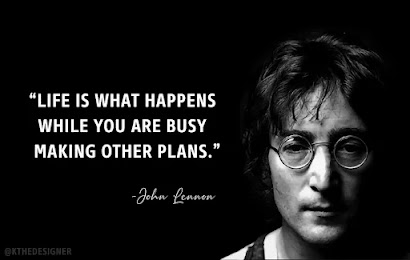I was inspired by a podcast called The 500 hosted by Los Angeles-based comedian Josh Adam Meyers. His goal, and mine, is to explore Rolling Stone Magazine's 2012 edition of The 500 Greatest Albums of All Time.
Album: # 351
Album Title: Rust Never Sleeps
Artist: Neil Young
Genre: Acoustic, Hard Rock, Proto-Grunge
Recorded: Live at Six Venues
Released: June, 1979
My age at release: 13
How familiar was I with it before this week: Quite familiar
Song I am putting on my Spotify Playlist: Hey Hey, My My (Into The Black)

 |
| Six frequently played records from our 82/83 basement parties |
Invariably, when Brent or Glen would bring up Neil Young or any of his other musical partnerships (Buffalo Springfield, Crosby, Stills, Nash & Young or Crazy Horse), I would launch a light-hearted complaint, which would invariably include an irritating impersonation of his singing voice. A high-spirited debate on musical taste would ensue and, predictably, shots would be fired at my favourite band, Rush.  |
| Rush in concert - late 70s |
As I've mentioned in previous posts, there is a quote I love from Adam Horovitz (Ad Rock of Beastie Boys): "I'd rather be a hypocrite than the same person forever." Time and maturity have changed my opinion. About 15 years ago, I began learning the Neil Young song Harvest Moon on the guitar. When I was sufficiently competent enough to try singing it, the first thing I did was attempt to effect Young's characteristic contra-tenor style. It didn't work. I'm not Neil. Nobody is -- and that is a good thing.In a commercial music market crowded with perfect-pitch singers more suited for Broadway than contemporary songwriting, we need more unique voices. We need more Neil Youngs, Louis Armstrongs, Bob Dylans and Geddy Lees. We need singers who are comfortable with their own unique sound. Artists such as Dave Matthews, Kate Bush and Gord Downie. If an old guy can attempt to be tragically hip, Billie Eilish, Sia, or Lana Del Rey fit the bill in contemporary music. |
| Billie Eilish |
Rust Never Sleeps is a live recording by Young, the Canadian multi-instrumentalist, singer and songwriter. Side one features him performing solo with an acoustic guitar and harmonica. Side two is electric, featuring Young with the American band Crazy Horse. At the time of these recordings, Crazy Horse included Billy Talbot (bass), Ralph Molino (drums) and Frank "Poncho" Pedro (guitars). All three also contributed backing vocals.
The record was recorded in 1978 during a lengthy tour of North America. It was later overdubbed in a studio. (Overdubbing, sometimes called "sweetening", is a technique where previously recorded material is processed in the studio in order to upgrade the audio quality. Additionally, any errors or flaws in the recording process can be corrected by adding additional instrumentation over top of the existing recording.) |
| An example of a computer program adding overdubbing |
Jonathan Merlot, on his website Reboot Recording, offers a simplified explanation of the two benefits -- Corrective Overdubbing and Layering of Sounds: "Let’s say we have recorded a guitar part and it sounds great throughout the song, however there’s a mistake during the solo. We can record over that specific section and record a new solo that sounds amazing from start to end.
Also, imagine if you wanted to have two guitars playing during the chorus, however there is just one guitarist in the band. You can record the original guitar track with the band and then come in later to record another guitar part on top of the original."
The result is a magnificent record, clean and clear, with most of the audience noise removed. Rust Never Sleeps is the ideal marriage between the live experience and high quality studio sound -- particularly for 1979, long before today's digital technology.
While preparing for this week's post, I cued up Rust Never Sleeps at least a dozen times. With each listen, my enjoyment increased. I couldn't help but think about Glen and Brent, whom I've not seen in nearly twenty years. I suppose I owe them an apology. Neil Young is pretty special, and this record deserved its spins in high school.
Some Cool Facts:
- The songs Hey Hey, My My bookend the record. The opening track, Hey Hey, My My (Out Of the Blue), is an acoustic version and was recorded at The Boarding House Music Club in San Francisco. The closing track, Hey Hey, My My (Into The Black), is an electric version that was influenced by the punk rock zeitgeist of the late 70s.
- The art-punk band Devo collaborated with Young and Crazy Horse on the recording -- Devo guitarist/singer Mark Mothersbaugh suggested the phrase "rust never sleeps" to Young. It was the tag-line Mothersbaugh remembered from his time working as a graphic-artist and promoting Rust-Oleum, an automobile rust-proofing product.
- The lyrics to both songs reference the meteoric rise in popularity of Sex Pistols singer Johnny Rotten (John Lydon) among youth, despite being disparaged by adults and mainstream media as a dangerous influence. Rotten is compared to Elvis Presley, who had died a year earlier and had been similarly denigrated in the 50s.
- The song has been retroactively dubbed Proto-Grunge because of its influence on the musicians who emerged from Seattle's Post-Punk/Grunge scene in the 1990s. The bands Nirvana, Alice In Chains, Soundgarden and Pearl Jam have all cited it as a seminal influence.
- In 1995, Young recorded his 21st studio record, Mirror Ball, in Seattle where he collaborated with Pearl Jam.
 |
| Mirror Ball Album Cover (1995) |
In many ways, Rust Never Sleeps is the connective tissue between the punk sounds of the 70s and the grunge music of the 90s. The bands I have just mentioned (Neil Young, Devo, Sex Pistols, John Lydon (PIL), Pearl Jam, Nirvana and Soundgarden) collectively have 14 albums on The 500.


.jpg)













